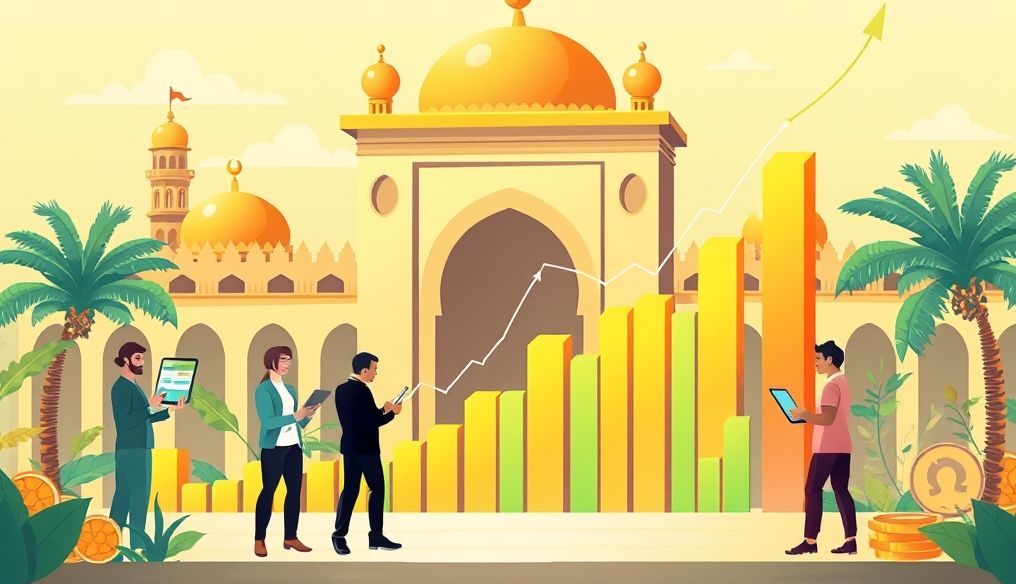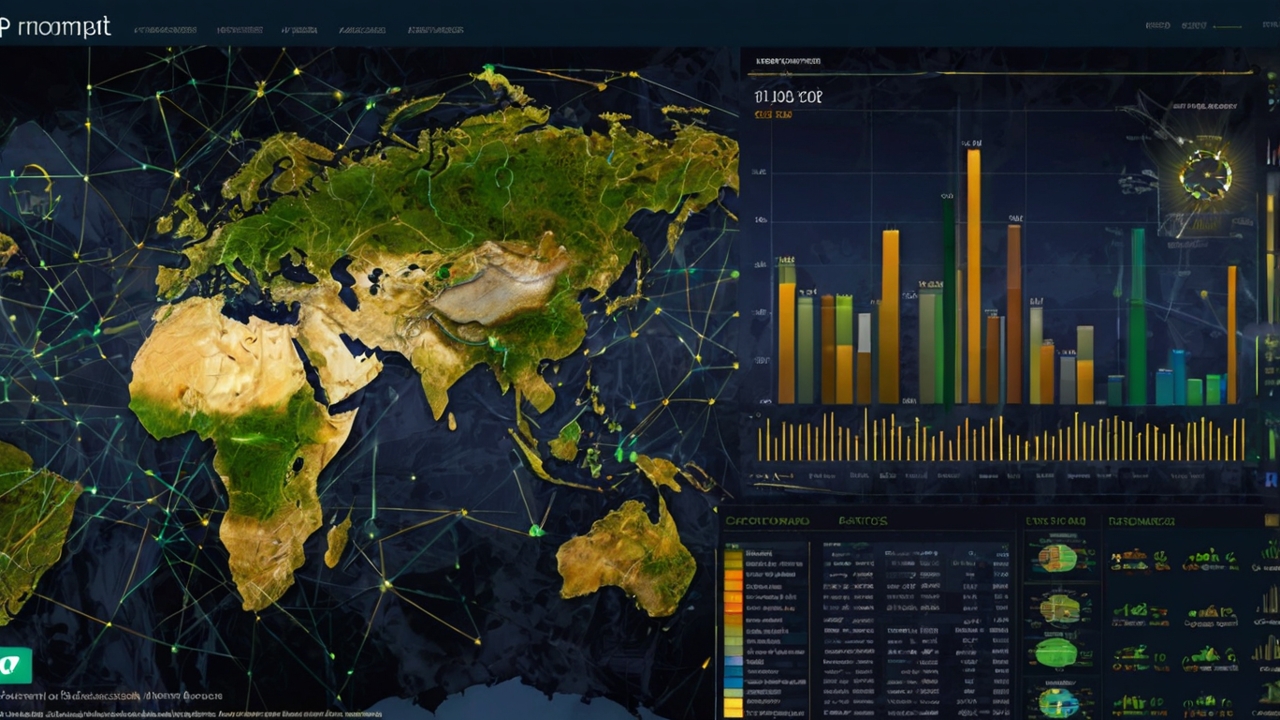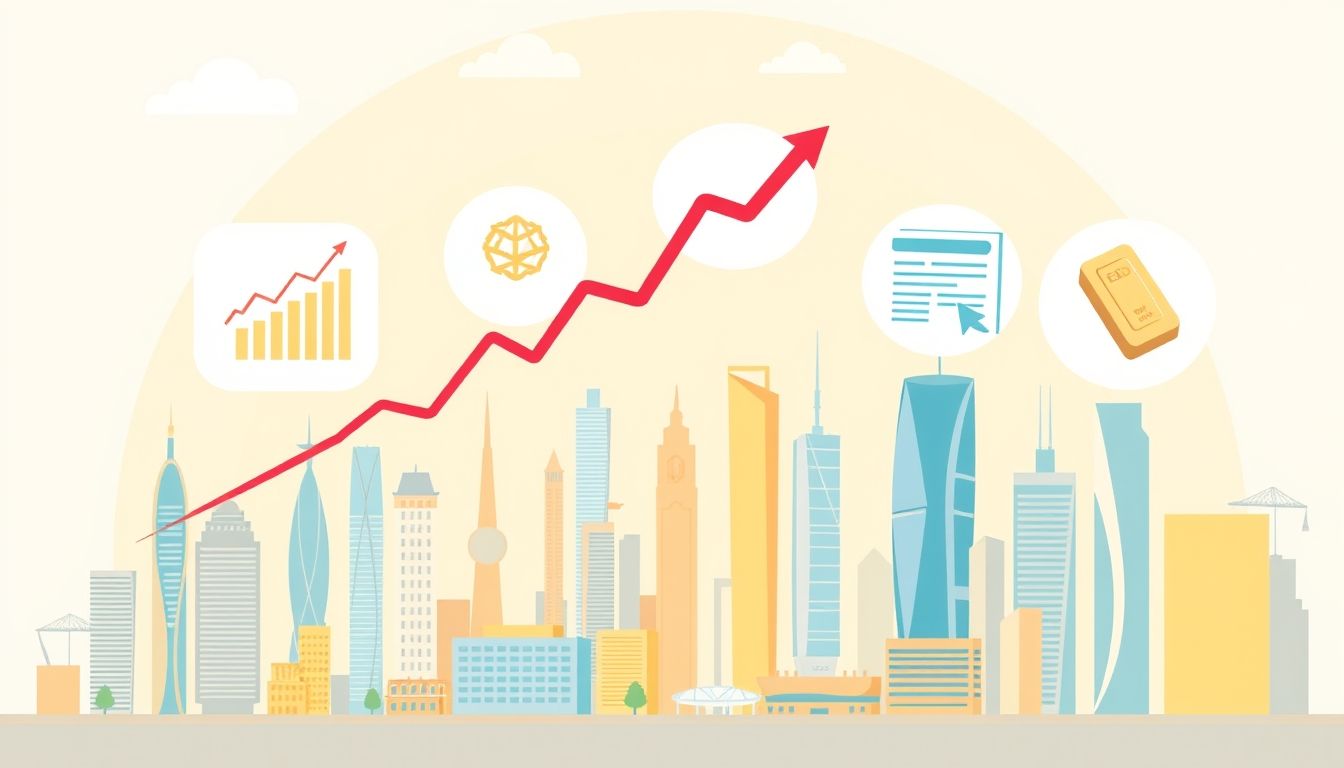Exchange Traded Funds (ETFs) in the Arab Market: Growth Opportunities and Challenges
Exchange Traded Funds (ETFs) are investment instruments that combine the advantages of mutual funds and individual stocks. These funds are traded on exchanges like stocks and aim to track the performance of a specific index, sector, or even a specific investment strategy. In the Arab market, ETFs are gaining increasing popularity, driven by the desire to diversify investment portfolios and access new markets and assets.
1. What are Exchange Traded Funds (ETFs)?
An Exchange Traded Fund (ETF) is a type of investment fund that is traded on the stock exchange just like stocks. An ETF owns a diverse range of assets such as stocks, bonds, and commodities, and aims to track the performance of a specific index, sector, or specific investment strategy. ETFs are characterized by transparency, as the fund's contents are published daily, allowing investors to know the assets the fund owns.
2. Advantages of Exchange Traded Funds (ETFs)
- Diversification: ETFs provide instant access to a wide range of assets, reducing investment risk.
- Liquidity: ETFs can be easily bought and sold on the stock exchange during trading hours.
- Low Cost: ETF management fees are usually lower than traditional mutual fund fees.
- Transparency: ETF holdings are published daily, allowing investors to know what assets the fund owns.
- Flexibility: ETFs can be used to implement various investment strategies, such as hedging against risks, speculating on prices, and long-term investing.
3. Types of Exchange Traded Funds (ETFs) in the Arab Market
Different types of ETFs are available in the Arab market, including:
- Index ETFs: Track the performance of major stock indices in the region, such as the MSCI EM index and local market indices.
- Sector ETFs: Focus on specific sectors of the economy, such as the banking sector, real estate sector, or energy sector.
- Commodity ETFs: Invest in basic commodities such as gold, oil, and natural gas.
- Bond ETFs: Invest in government and corporate bonds.
- Sharia-compliant ETFs: Invest in companies and assets that comply with Islamic Sharia principles.
4. Growth Opportunities in the Arab Market
The Arab market holds significant growth potential for ETFs, driven by several factors:
- Increased Investment Awareness: Investors in the region are increasingly aware of the importance of diversification and long-term investing.
- Development of Financial Infrastructure: Financial markets in the region are undergoing continuous developments, making access to ETFs easier.
- Wealth Growth: The volume of private wealth in the region is increasing, increasing the demand for diverse investment instruments.
- Institutional Investment: Investment institutions, such as pension funds and insurance companies, are increasing their investments in ETFs.
5. Challenges Facing Exchange Traded Funds (ETFs) in the Arab Market
Despite the great potential, ETFs face some challenges in the Arab market:
- Limited Available Products: The number of ETFs available in the region is still limited compared to global markets.
- Low Liquidity: Liquidity in some ETFs may be low, increasing trading costs.
- High Fees: Management fees for some ETFs may be relatively high.
- Limited Awareness: Awareness of ETFs is still limited among some investors.
- Regulation: Regulatory frameworks need to evolve to keep pace with the growth of ETFs.
6. Examples of Exchange Traded Funds (ETFs) in the Arab Market
There are some examples of ETFs traded in Arab markets, although limited. These examples include:
- ETFs tracking local stock indices: Such as ETFs that track the EGX30 index in Egypt, or the Saudi Tadawul index.
- ETFs focusing on specific sectors: Such as ETFs that focus on the banking sector in the UAE.
- Sharia-compliant ETFs: Such as ETFs that invest in Sharia-compliant stocks in Malaysia and Saudi Arabia.
7. How to Choose the Right Exchange Traded Fund (ETF)?
When choosing an ETF, consider the following factors:
- Investment Goals: Define your investment goals and the level of risk you can tolerate.
- Tracking Index: Make sure the ETF tracks the index you want to invest in.
- Management Fees: Compare management fees between different ETFs.
- Liquidity: Make sure the ETF has enough liquidity to meet your needs.
- Fund Size: Larger ETFs are usually more liquid and less likely to close.
8. Tips for Investors in Exchange Traded Funds (ETFs)
- Do Thorough Research: Before investing in any ETF, do thorough research on the fund and its tracking index.
- Diversify Your Portfolio: Use ETFs to diversify your investment portfolio and reduce risk.
- Invest for the Long Term: ETFs are suitable investment instruments for long-term investing.
- Monitor Fund Performance: Monitor ETF performance periodically and adjust your portfolio as needed.
- Consult a Financial Advisor: If you are unsure how to invest in ETFs, consult a financial advisor.
9. Future of Exchange Traded Funds (ETFs) in the Arab Market
The ETF market in the region is expected to experience significant growth in the coming years, driven by increased investment awareness, the development of financial infrastructure, and wealth growth. However, achieving this growth will require addressing current challenges, such as the limited availability of products, low liquidity, and high fees.
10. Conclusion
Exchange Traded Funds (ETFs) offer attractive investment opportunities in the Arab market, but investors should understand their advantages and disadvantages before investing in them. By conducting thorough research and choosing ETFs that are appropriate for their investment goals, investors can benefit from the diversification, liquidity, and low cost that these investment instruments provide.




